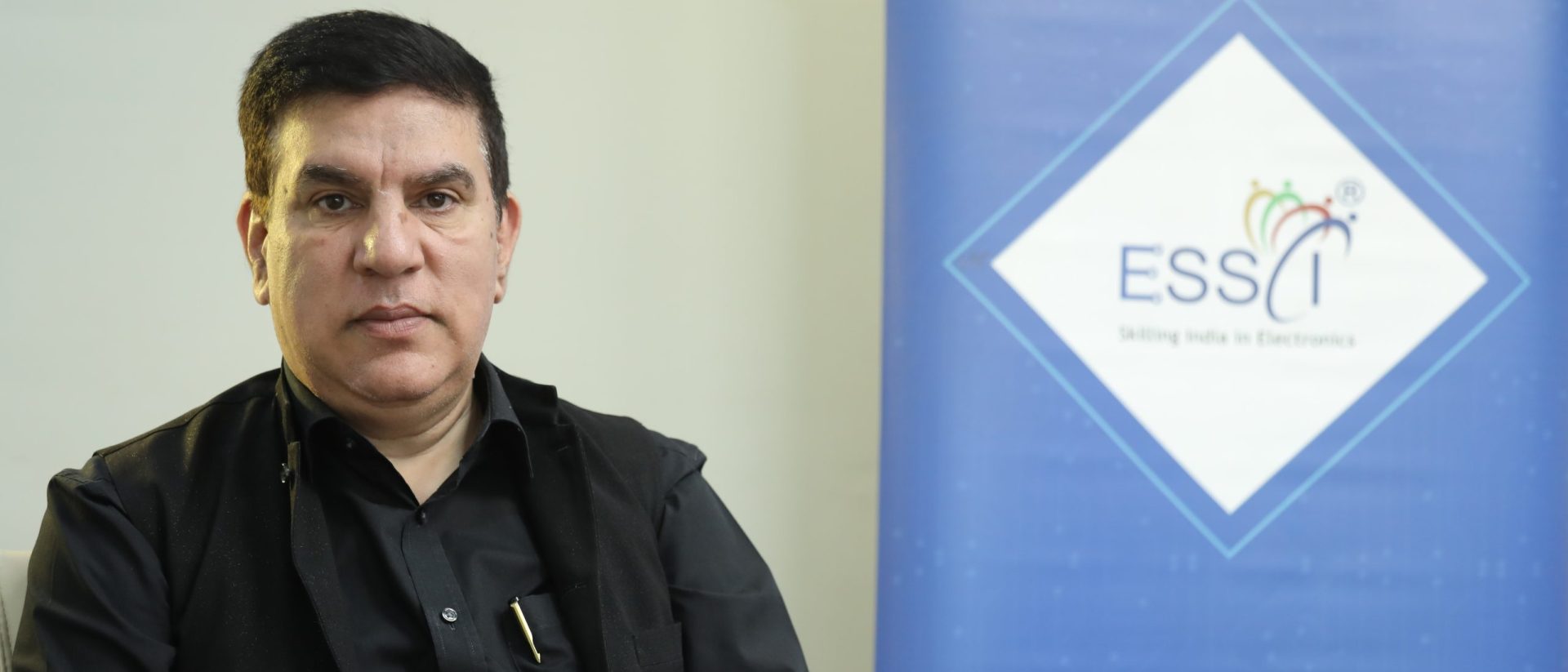In the heart of India’s rapidly transforming digital economy, a silent revolution is underway women are stepping into the circuits and chips of the electronics industry, carving out spaces in labs, production floors, design centers, and boardrooms. Once considered a male-dominated field, the Indian electronics sector is now increasingly recognizing the power of diversity, and women are playing a key role in this evolution.
From the factory lines in Noida to innovation hubs in Bengaluru, women are taking up the soldering iron, the oscilloscope, and the executive chair. And at the heart of this transformation is the Electronics Sector Skills Council of India (ESSCI)—a catalyst for empowering women through targeted skilling and industry-aligned training.
The Expanding Electronics Landscape
India’s electronics industry is expected to surpass USD 300 billion by 2026, fuelled by global shifts in supply chains, robust government incentives like the Production Linked Incentive (PLI) scheme, and rising domestic consumption of electronic goods. As India moves towards becoming a global hub for electronics manufacturing and design, the demand for a skilled, innovative, and diverse workforce is growing exponentially.
This surge brings with it immense career opportunities for women, especially in:
- Electronics Manufacturing Services (EMS)
- Semiconductor design and embedded systems
- Mobile and consumer electronics repair
- PCB assembly and quality control
- IoT, Robotics, and Automation
- Solar electronics and green energy solutions
The industry’s demand for precision, discipline, and focus makes women particularly well-suited for many of these roles. However, to fully harness this potential, skilling and upskilling are non-negotiable—and that’s where ESSCI plays a pivotal role.
ESSCI: The Enabler Behind the Change
Established under the Ministry of Skill Development and Entrepreneurship (MSDE), ESSCI is the nodal body dedicated to creating a skilled ecosystem for the electronics sector. With over 75 job roles developed and aligned to National Skill Qualification Framework (NSQF), ESSCI has been instrumental in mainstreaming women into electronics-related job roles.
Key Initiatives Include:
- Women-Centric Skilling Programs for roles like LED assembly, mobile repair, solar installations, and PCB soldering.
- Industry-Academia Partnerships to ensure real-world exposure and better placement outcomes.
- National Apprenticeship Promotion Scheme (NAPS) facilitation to integrate women into mainstream apprenticeships.
- Train-the-Trainer Models to build a strong base of female instructors, creating ripple effects in communities.
How to Get Started
- Education: Pursue a B.Tech/B.E. in Electronics and Communication Engineering, Electrical Engineering, or related fields from private institutions. Specialized courses in VLSI, IoT, or embedded systems enhance employability.
- Certifications: Enroll in ESSCI courses for industry-recognized certifications in semiconductor design, IoT, and AI.
Career Paths Open to Women
Whether a woman is a school dropout, an ITI student, or an engineering graduate, the electronics sector has space for everyone:
- Skilled Technicians and Operators
Women are increasingly hired in electronics factories for their dexterity, precision, and focus, particularly in roles like soldering, assembling, testing, and quality control for products like smartphones, consumer durables, and electric vehicles (EVs). For example, Tata Motors employs 1,500 women in its SUV production line, and MG Motor India has 37% women on its shop floor.
Women with short-term skill training can begin careers in:
- Electronic assembly
- PCB soldering
- Component testing
- Quality inspection
These roles are in high demand in electronics manufacturing clusters like Sriperumbudur, Noida, and Pune.
- Mid-Level Technical Jobs
Diploma holders and trained candidates can explore:
- Service and repair of smartphones, TVs, and consumer electronics
- Solar system installation and maintenance
- EV charging station technicians
- Automation and IoT device installation
- Engineering and R&D Careers
Women are excelling in chip design, verification, and testing. The semiconductor industry is projected to grow significantly, with women’s participation expected to rise from 24–28% in 2020 to over 30% by 2027. Roles include VLSI design engineer and semiconductor manufacturing engineer. For B.Tech or M.Tech graduates in ECE or related fields, opportunities lie in:
- VLSI and embedded systems
- Hardware design and validation
- Product testing and compliance
- Robotics and sensor integration
With remote work and flexible hours becoming more acceptable, women engineers can balance family responsibilities and professional growth effectively.
- Entrepreneurship
Skilled women are also turning into job creators by starting:
- LED bulb manufacturing units
- Repair centers for electronics and white goods
- Retail of components and accessories
- Local e-waste collection and recycling businesses
ESSCI supports such ventures by linking women to funding agencies, mentoring, and digital platforms.
Industry Trends Supporting Women
- Growth of the Electronics Sector: India’s electronics industry is projected to grow significantly, with the semiconductor market alone expected to reach $100–110 billion by 2030, driven by technologies like AI, IoT, 5G, and EVs. This creates a high demand for skilled professionals, including women.
- Gender Diversity Initiatives: Companies like Micron (28% women workforce) and NXP (24% women workforce) are fostering inclusive environments with flexible work policies, maternity benefits, and return-ship programs for women re-entering the workforce.
- Government Support:
- Science and Technology for Women Program promotes women’s participation in STEM through research and skill development.
- Skill India Initiatives provide training in VLSI, AI, and IoT, targeting women to bridge the skill gap.
- The 2017 Maternity Bill and policies addressing workplace safety support women’s retention in the workforce.
High-Demand Roles and Salaries
- VLSI Design Engineer: ₹5–10 LPA (entry-level), ₹15–20 LPA (senior).
- Embedded Systems Engineer: ₹5–8 LPA (entry-level), ₹10–15 LPA (mid-level).
- PCB Design Engineer: ₹4–7 LPA (fresher), up to ₹12 LPA (experienced).
- Semiconductor Manufacturing Engineer: ₹6–10 LPA (entry-level), ₹15 LPA+ (senior).
Conclusion:
The journey for women in electronics has just begun, and the signal is strong: India’s electronics industry needs women—not just as workers, but as leaders, innovators, and entrepreneurs. With the right mix of policy support, industry collaboration, and targeted skilling initiatives like those from ESSCI, the future circuit boards of India will not only carry current—they’ll carry the hopes of empowered women everywhere.







